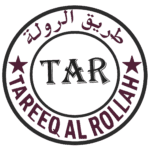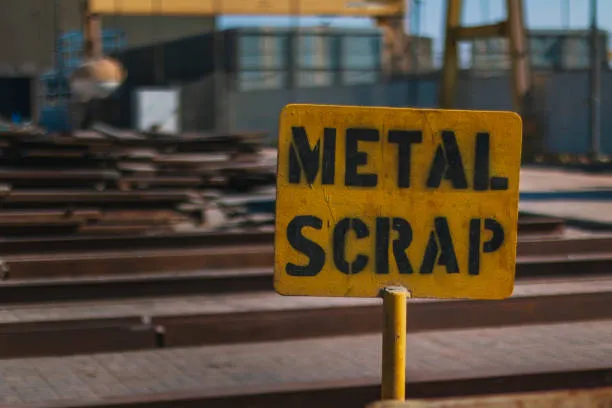scrap value of radiators are essential components in various systems, such as vehicles and heating systems, and they can also hold significant scrap value when it comes time to recycle them. Understanding the scrap value of radiators is crucial for anyone looking to sell their old or unused units, as factors like metal composition, condition, and current market prices play a vital role in determining their worth. In this article, we will explore what influences the scrap value of radiators and provide insights on how to maximize returns when recycling these metal components.
what is radiator scrap?

scrap value of radiators
Radiator scrap refers to discarded or unwanted radiators, typically made of metal, that are no longer usable in their original form.
These radiators can be found in vehicles, heating systems, and air conditioning units.
They often consist of materials like aluminum or copper, which have significant value in the scrap metal market.
When recycling radiator scrap, the valuable metals are extracted and repurposed, contributing to environmental sustainability and resource conservation.
The recycling process involves removing non-metal components, such as plastic or rubber, to maximize the recovery of metal content.
read more: brass radiator scrap
Does a radiator have scrap value?
Yes, a radiator does have scrap value, as it is typically made from metals like aluminum and copper, which are highly sought after in the recycling market.
The scrap value of a radiator can vary based on several factors, including the type of metal it contains, its condition, and current market prices for scrap metal.
Radiators from vehicles, heating systems, or air conditioning units can be dismantled and sold to scrap yards or recycling centers, where they can be processed to recover the valuable metal content.
Selling radiator scrap not only provides financial benefits but also contributes to environmental sustainability by promoting recycling and reducing waste.
read more: scrap dealers that pick up scrap
scrap value of radiators
The scrap value of radiators can vary based on several factors, including the type of metals they contain (commonly aluminum or copper), the condition of the radiator, and the current market prices for scrap metals.
Generally, aluminum radiators tend to have a lower scrap value compared to copper radiators, which are more valuable due to copper’s higher market price.
Radiator Types and Materials that we buy
At Tareeq Al Rollah, we purchase various types of radiators and the materials they are made from.
Our focus includes:
- Aluminum Radiators:
Commonly found in vehicles and HVAC systems, aluminum radiators are lightweight and have a high scrap value due to the demand for aluminum in the recycling market.
- Copper Radiators:
Known for their excellent thermal conductivity, copper radiators are often used in high-performance applications.
They are highly valued in the scrap market, making them a profitable option for sellers.
- Brass Radiators:
Sometimes used in older vehicles and heating systems, brass radiators can also recycled for their metal content.
- Mixed Metal Radiators:
We accept radiators that contain a combination of metals, provided they separated for recycling purposes.
By offering competitive pricing for these radiator types, Tareeq Al Rollah ensures that you receive fair value for your scrap materials while contributing to sustainable recycling practices.
read more: Iron scrap purchaser
Factors Influencing the Scrap Value of Radiators
Several factors influence the scrap value of radiators, affecting how much sellers can expect to receive when recycling them.
These factors include:
- Metal Composition:
The type of metal used in the radiator significantly impacts its scrap value.
Radiators made of copper generally fetch a higher price compared to those made of aluminum or brass due to copper’s greater demand and higher market price.
- Condition of the Radiator:
The physical condition of the radiator affects its value.
Radiators that clean, undamaged, and free from non-metal components such as plastic or rubber, are more likely to valued higher.
Damage or corrosion can lower the scrap value.
- Current Market Prices:
Scrap metal prices fluctuate based on supply and demand dynamics in the market.
Global economic conditions, changes in production rates, and competition among buyers can all influence current prices for scrap metals, including those from radiators.
- Quantity of Scrap:
The volume of radiators sold can also affect the scrap value.
Sellers with larger quantities may be able to negotiate better prices compared to those selling smaller amounts, as buyers often prefer bulk purchases.
- Local Recycling Policies:
Different regions may have varying regulations and policies regarding scrap metal recycling.
Local scrap yards may have their pricing structures based on these regulations, impacting the overall value offered to sellers.
- Separation of Materials:
Radiators with mixed metal components may require additional processing to separate the metals, which can influence the pricing.
Cleanly separated metals can lead to higher scrap values.
By understanding these factors, sellers can make informed decisions when recycling their radiators and maximize their returns.
read more:aluminium scrap dealers
Preparing Your Radiator for Scrap: Best Practices

scrap value of radiators
When preparing your radiator for scrap, following best practices can help you maximize its value and ensure a smooth recycling process.
And here are some key steps to consider:
-
Clean the Radiator:
Remove any dirt, dust, or debris from the radiator. If it has coolant or other fluids inside, make sure to drain them completely.
Clean radiators are more appealing to scrap buyers and can fetch a higher price.
-
Remove Non-Metal Components:
Detach any non-metal parts, such as plastic or rubber fittings, hoses, or insulation.
These components can reduce the scrap value and complicate the recycling process.
And focus on keeping the radiator itself intact.
-
Dismantle If Necessary:
If you’re dealing with mixed-metal radiators, consider dismantling them to separate the different metal types.
This separation can help you get better prices for each type of metal.
-
Check for Damage:
Inspect the radiator for any significant damage or corrosion.
While minor wear and tear may not drastically affect value, severely damaged radiators may not be worth recycling.
If the damage is extensive, it may be best to dispose of it as waste.
-
Weigh Your Scrap:
If possible, weigh the radiator before heading to the scrap yard.
Knowing its weight can help you estimate potential earnings and ensure you receive fair compensation based on weight.
-
Research Local Scrap Yards:
Before selling your radiator, research local scrap yards to find the best prices.
Different buyers may offer varying rates based on demand and market conditions, so it’s worth comparing options.
-
Keep Records:
Maintain records of your scrap transactions, including prices and weights.
This information can help you track your recycling efforts and make informed decisions in the future.
By following these best practices, you can effectively prepare your radiator for scrap, maximizing its value while contributing to recycling efforts.
In conclusion, the scrap value of radiators can vary significantly based on factors such as the type of metal used, the condition of the radiator, and prevailing market prices. By understanding these influences and properly preparing radiators for recycling, sellers can enhance their chances of receiving a better return on their scrap.
Whether you’re clearing out old equipment or upgrading systems, recycling radiators offers not only a financial benefit but also contributes to sustainable practices by reducing waste and promoting metal reuse.





